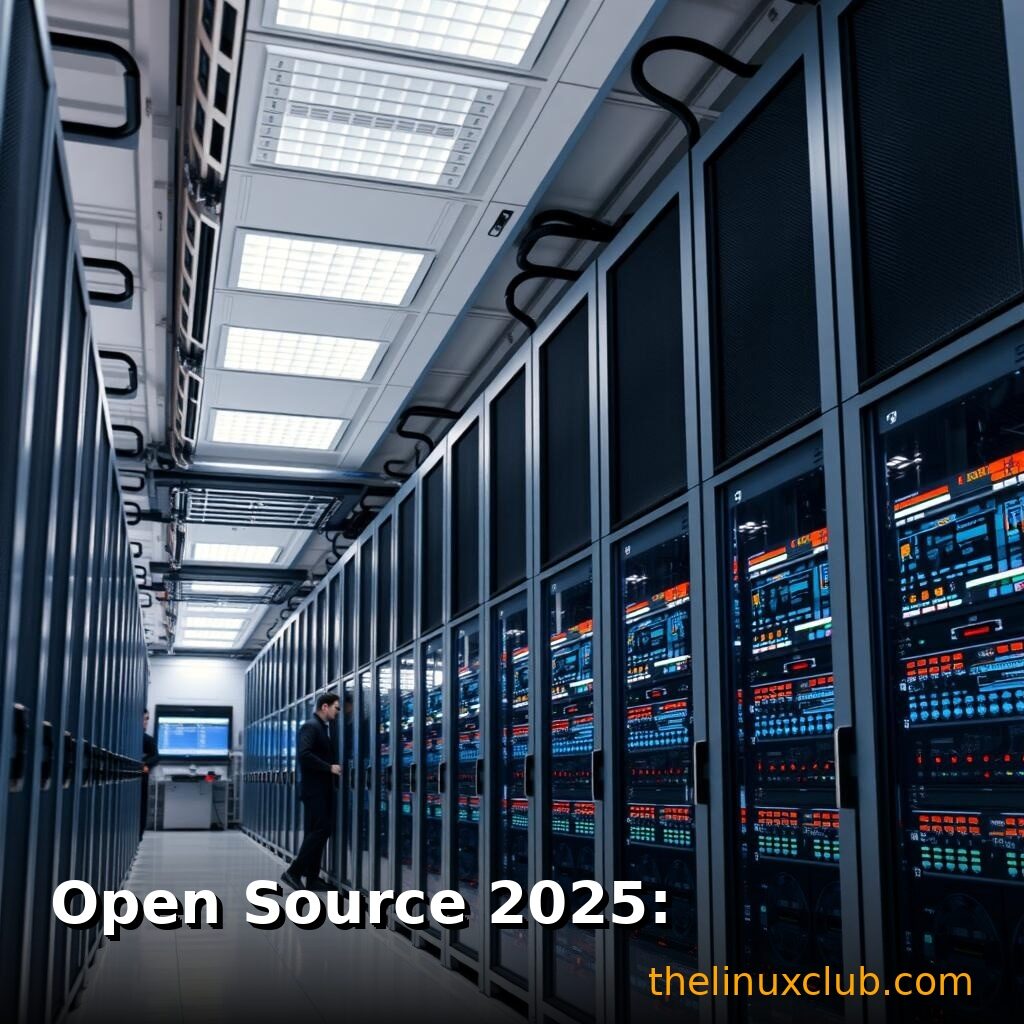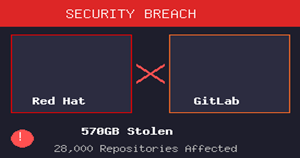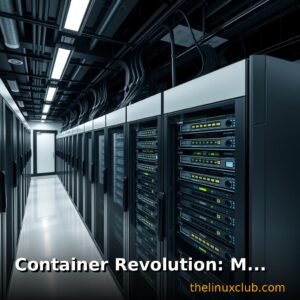Open Source: Revolutionary Trends Shaping the Future of Collaborative Development

📑 Table of Contents
- Open Source Development Trends 2025: The Future of Collaborative Innovation
- The Rise of AI-Powered Development
- Security-First Development
- Cloud-Native Development Evolution
- Developer Experience Revolution
- Programming Language Trends
- Enterprise Open Source Adoption
- Sustainability and Green Computing
- Emerging Technology Integration
- Community and Governance Evolution
- Economic Models and Sustainability
- Future Predictions
- Getting Involved
- Conclusion
Open Source Development Trends 2025: The Future of Collaborative Innovation
The open source software ecosystem is experiencing unprecedented growth and innovation, fundamentally reshaping how technology is developed, deployed, and maintained across industries. As we move into 2025, emerging trends in open source development are creating new opportunities for collaboration, security, and technological advancement that will define the next decade of computing.
The Rise of AI-Powered Development
Machine Learning Integration
Open source projects are increasingly incorporating AI capabilities:
- Code Generation: AI assistants helping developers write better code faster
- Automated Testing: Machine learning models identifying potential bugs and vulnerabilities
- Documentation Generation: AI tools creating comprehensive project documentation
- Community Management: Intelligent systems helping maintainers manage contributions
Notable AI-Driven Projects
- TensorFlow: Continuing to lead in machine learning frameworks
- PyTorch: Rapid adoption in research and production environments
- Hugging Face: Democratizing access to state-of-the-art AI models
- OpenAI Whisper: Revolutionary speech recognition capabilities
Security-First Development
Zero-Trust Open Source
Security considerations are becoming paramount in open source development:
- Supply Chain Security: Comprehensive tracking from source to deployment
- Automated Vulnerability Scanning: Real-time detection of security issues
- Cryptographic Signing: Mandatory signing of commits and releases
- Dependency Management: Enhanced tools for managing third-party dependencies
Security Initiatives
- OpenSSF: Open Source Security Foundation driving industry standards
- SLSA Framework: Supply-chain Levels for Software Artifacts
- Sigstore: Code signing infrastructure for the masses
- SBOM Standards: Software Bill of Materials becoming mandatory
Cloud-Native Development Evolution
Kubernetes Ecosystem Maturation
- Operator Pattern: Standardization of application management patterns
- Service Mesh: Istio and Linkerd adoption in enterprise environments
- Serverless Containers: Knative enabling event-driven architectures
- Multi-Cloud Deployment: Tools enabling seamless cloud portability
Edge Computing Integration
- K3s and MicroK8s: Lightweight Kubernetes for edge deployments
- OpenYurt: Extending cloud capabilities to edge environments
- EdgeX Foundry: Industrial IoT framework gaining enterprise adoption
- Akri: Kubernetes resource interface for leaf devices
Developer Experience Revolution
Modern Development Workflows
- GitHub Codespaces: Cloud-based development environments
- GitPod: Automated dev environment setup
- DevContainers: Standardized development environment configuration
- Nix and Flakes: Reproducible development environments
Collaboration Tools Evolution
- Real-time Editing: Collaborative coding environments
- AI Code Review: Automated code quality assessment
- Integrated Testing: Continuous testing within development workflows
- Documentation as Code: Automated documentation generation and maintenance
Programming Language Trends
Systems Programming Renaissance
- Rust Adoption: Memory safety without performance penalties
- Go Ecosystem: Continued growth in cloud-native applications
- Zig Language: Emerging as a C replacement
- Carbon Language: Google experimental successor to C++
Web Development Evolution
- TypeScript Dominance: Becoming the default for JavaScript development
- WebAssembly Growth: Near-native performance in web browsers
- Deno Ecosystem: Modern JavaScript runtime gaining traction
- Bun Runtime: Ultra-fast JavaScript toolkit and runtime
Enterprise Open Source Adoption
Corporate Contribution Patterns
- OSPO Growth: Open Source Program Offices becoming standard
- Inner Source: Applying open source practices internally
- Supplier Diversity: Supporting diverse open source communities
- Sustainability Funding: Long-term financial support for critical projects
Industry Collaboration
- Linux Foundation: Growing ecosystem of collaborative projects
- Apache Foundation: Continued innovation in data processing
- CNCF: Cloud native computing foundation expanding rapidly
- Eclipse Foundation: Focus on IoT and automotive industries
Sustainability and Green Computing
Environmental Awareness
- Carbon Footprint Tracking: Tools measuring software environmental impact
- Energy-Efficient Algorithms: Optimizing code for lower power consumption
- Green CI/CD: Sustainable continuous integration practices
- Lifecycle Assessment: Evaluating total environmental impact
Sustainable Development Goals
- Digital Inclusion: Making technology accessible globally
- Educational Initiatives: Teaching sustainable software development
- Community Gardens: Local technology resource sharing
- Circular Economy: Hardware reuse and recycling programs
Emerging Technology Integration
Quantum Computing Preparation
- Qiskit: IBM quantum computing framework
- Cirq: Google quantum circuit simulator
- PennyLane: Quantum machine learning framework
- Post-Quantum Cryptography: Preparing for quantum-safe security
Blockchain and Decentralization
- Web3 Infrastructure: Decentralized application platforms
- IPFS Evolution: Distributed file system adoption
- Smart Contract Platforms: Ethereum alternatives gaining ground
- Decentralized Identity: Self-sovereign identity solutions
Community and Governance Evolution
Inclusive Community Building
- Diversity Initiatives: Programs increasing participation from underrepresented groups
- Mentorship Programs: Structured support for new contributors
- Code of Conduct: Establishing healthy community standards
- Accessibility Focus: Making projects usable by everyone
New Governance Models
- Meritocratic Leadership: Earned authority through contribution
- Rotating Maintainership: Preventing burnout through shared responsibility
- Community Voting: Democratic decision-making processes
- Advisory Councils: External guidance for strategic decisions
Economic Models and Sustainability
Funding Innovation
- GitHub Sponsors: Direct developer support mechanisms
- Open Collective: Transparent community funding
- Corporate Patronage: Long-term enterprise support commitments
- Grant Programs: Foundation and government funding initiatives
Commercial Open Source
- Open Core Models: Balancing open source and commercial interests
- Dual Licensing: Flexible licensing for different use cases
- Service-Based Revenue: Support and services around open source
- Marketplace Platforms: Commercial ecosystems around open projects
Future Predictions
Technology Convergence
- AI-Native Development: AI integrated into every aspect of software creation
- Quantum-Classical Hybrid: Combining quantum and classical computing
- Edge-Cloud Continuum: Seamless workload distribution
- Immersive Collaboration: VR/AR development environments
Societal Impact
- Digital Sovereignty: Nations building independent technology stacks
- Educational Transformation: Open source reshaping how we teach technology
- Healthcare Innovation: Open source driving medical technology advances
- Climate Solutions: Technology addressing environmental challenges
Getting Involved
For Individual Developers
- Find Your Niche: Identify projects aligning with your interests
- Start Small: Begin with documentation or bug reports
- Join Communities: Participate in forums, chat, and events
- Learn Continuously: Stay updated with emerging technologies
For Organizations
- Develop OSPO Strategy: Create formal open source program
- Contribute Upstream: Give back to projects you depend on
- Support Maintainers: Provide resources for project sustainability
- Foster Innovation: Create environments encouraging open collaboration
Conclusion
The open source ecosystem in 2025 represents a mature, diverse, and innovative landscape that continues to drive technological advancement across industries. From AI integration to quantum computing preparation, open source communities are at the forefront of every major technological shift.
As we look toward the future, the collaborative nature of open source development ensures that innovations benefit everyone, creating a more inclusive, sustainable, and innovative technology ecosystem. The trends shaping open source today will define how we build, deploy, and interact with technology for years to come.
Organizations and individuals who engage with open source communities position themselves at the center of technological innovation, contributing to and benefiting from the collective intelligence of the global developer community.
Was this article helpful?
About Ramesh Sundararamaiah
Red Hat Certified Architect
Expert in Linux system administration, DevOps automation, and cloud infrastructure. Specializing in Red Hat Enterprise Linux, CentOS, Ubuntu, Docker, Ansible, and enterprise IT solutions.


